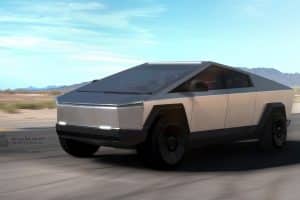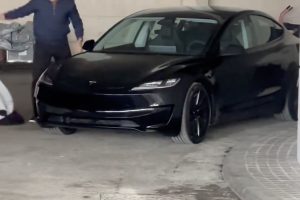Recent forecasts from BloombergNEF have indicated that electric cars and vans will likely be cheaper to produce than conventional, fossil-fueled powered alternatives by 2027, with smaller cars reaching the same threshold the following year.
If EVs were to reach these milestones, vehicles powered by sustainable energy would likely earn the pole position to dominate new car sales by the middle of the next decade. This should allow companies like Tesla, and perhaps even newcomers like Rivian and Lucid Motors, to hit their pace in their efforts to break into the mainstream auto market.
Reaching price parity with cars equipped with an internal combustion engine has long been perceived as a critical milestone that would allow the transportation sector to transition from the burning of fossil fuels to be the use of more sustainable energy. This is one of the reasons why Tesla and other carmakers are investing heavily in the development of battery technology, considering that batteries remain one of the most expensive parts of an electric car.
Fortunately, the cost of producing EV batteries has fallen significantly over the years. Coupled with new carmakers embracing an all-electric lineup, as well as legacy automakers such as Volkswagen creating dedicated production lines for EVs in their facilities, all-electric vehicles may very well see their average prices drop within the next six years, as per BloombergNEF.
So far, the current average price for medium-sized electric cars is €33,300 ($40,495.80), while fossil fuel-driven cars have an average price of €18,600 ($22,619.27). By 2026, both EVs and internal combustion cars are expected to cost around €19,000 ($23,105.71). By 2030, electric cars are forecast to cost €16,300 ($19,822.27), while their internal combustion counterparts are expected to cost €19,900 ($24,200.19).
Inasmuch as BloombergNEF’s forecasts are favorable for electric vehicles, they are actually quite conservative. Investment bank UBS has predicted that electric cars will cost the same to produce as their internal combustion counterparts as early as 2024 instead. “There are not many reasons left to buy an ICE car after 2025,” Tim Bush, a UBS analyst, said.





